The CSEM is happy to announce members of the recently convened advisory group of civil society and community representatives for focused work on the Global Action Plan for Healthy Lives and Wellbeing for All – Uniting to Accelerate Progress towards the Health-Related SDGs (GAP). The initiative, aimed at accelerating progress towards SDG 3 at the country level, was led by WHO at the request of the leadership of Germany, Ghana and Norway. To advocate for inclusion of civil society in further development of the GAP, CSEM wrote this letter, endorsed by more than 100 civil society organizations, to WHO Director-General Tedros. In response, WHO expressed its intention to establish a transparent system for engaging civil society throughout this initiative.
CSEM, in collaboration with the Global Fund Advocates Network (GFAN), then organized a two-day strategy session from December 12-13, 2018, to explore civil society engagement in the GAP. The session resolved to establish the GAP Civil Society Advisory Group. Following an open call and selection process led by a widely representative, multi-stakeholder committee, eight diverse representatives came on board. Their initial responsibilities include to:
- Oversee design and implementation of virtual and face-to-face civil society consultation processes for the GAP
- Consolidate, publish and disseminate civil society inputs to the GAP
- Provide oversight of and facilitating the engagement of civil society in all GAP processes
- Serve as a liaison to WHO and other partners as part of its oversight role
- Establish small working groups for each accelerator and/or different types of engagement.
To learn more, please visit the GAP Civil Society Advisory Group page.
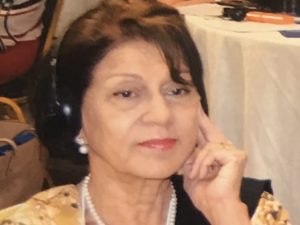 Prof. Dure Samin Akram is the Chairperson and founding member of Health Education and Literacy Program (HELP) in Pakistan. She is an American Board-certified Pediatrician and received her Masters in Public Health from Yale University, and is Chairperson of the Pediatric Department at Dow University of Health Sciences in Pakistan. Her expertise is in Infectious diseases, Vaccinology and Nutrition. She is presently member of the Gavi CSO Steering Committee, representing the CSO Constituency in the Program and Policy Committee of Gavi, the Vaccine Alliance. In Pakistan, she is a member of: the WHO Global Advisory Committee on Vaccine Safety, member of National Immunization Technical Advisory Group (NITAG) for Immunization in Pakistan, and the Technical Advisory Committee for Nutrition. She has over 70 research publications to her credit. She has successfully completed a number of consultancies and trainings for World Bank, DFID WHO, UNICEF and USAID. She is the recipient of the “Pride of Performance” Award from the President of Pakistan, among others.
Prof. Dure Samin Akram is the Chairperson and founding member of Health Education and Literacy Program (HELP) in Pakistan. She is an American Board-certified Pediatrician and received her Masters in Public Health from Yale University, and is Chairperson of the Pediatric Department at Dow University of Health Sciences in Pakistan. Her expertise is in Infectious diseases, Vaccinology and Nutrition. She is presently member of the Gavi CSO Steering Committee, representing the CSO Constituency in the Program and Policy Committee of Gavi, the Vaccine Alliance. In Pakistan, she is a member of: the WHO Global Advisory Committee on Vaccine Safety, member of National Immunization Technical Advisory Group (NITAG) for Immunization in Pakistan, and the Technical Advisory Committee for Nutrition. She has over 70 research publications to her credit. She has successfully completed a number of consultancies and trainings for World Bank, DFID WHO, UNICEF and USAID. She is the recipient of the “Pride of Performance” Award from the President of Pakistan, among others.
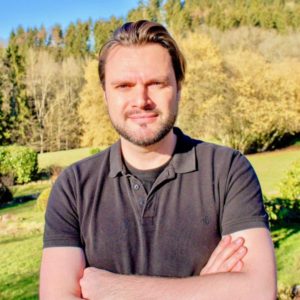 Dr. Fabian Cataldo is a passionate researcher and advocate, specialized in social anthropology, health systems, and universal access to health services in low-income settings. Over the past 18 years, he has led research and advocacy in Brazil and several Southern African countries, with a focus on health activism, HIV, and Sexual and Reproductive Health and Rights (SRHR). He obtained his PhD from Goldsmiths, University of London, supported by The Wellcome Trust, and received the New Writer Prize by Sociology of Health and Illness. Fabian is currently Senior Advocacy Adviser at International Planned Parenthood Federation (IPPF), Honorary Research Associate at the Institute for Global Health and Development at Queen Margaret University, and member of the Marie Stopes International Ethics Review Committee.
Dr. Fabian Cataldo is a passionate researcher and advocate, specialized in social anthropology, health systems, and universal access to health services in low-income settings. Over the past 18 years, he has led research and advocacy in Brazil and several Southern African countries, with a focus on health activism, HIV, and Sexual and Reproductive Health and Rights (SRHR). He obtained his PhD from Goldsmiths, University of London, supported by The Wellcome Trust, and received the New Writer Prize by Sociology of Health and Illness. Fabian is currently Senior Advocacy Adviser at International Planned Parenthood Federation (IPPF), Honorary Research Associate at the Institute for Global Health and Development at Queen Margaret University, and member of the Marie Stopes International Ethics Review Committee.
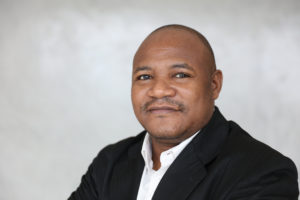
Photo © Dominic Chavez/World Bank Group
Dr. Aminu Magashi Garba is the founder and coordinator of the Africa Health Budget Network, a regional group that uses budget advocacy to influence adequate health spending and improved transparency and accountability. He is the immediate past civil society representative to the Global Financing Facility (GFF) Investors Group (2017/18) and currently a member of the steering committee of the Global Civil Society Coordinating Group for the GFF. He is the West African Coordinator of the Community of Practitioners on Accountability and Social Action in Health (COPASAH) and in 2018 served on the WHO Civil Society Advisory Group for its Health Financing Campaign. In Nigeria, he is a founding member of the National Advocates for Health, a policy and advocacy think-tank engaging in high level advocacy on health care financing reforms. He sits on the Advisory Board of the Advocacy Accelerator, a Kenyan Based regional advocacy initiative. In his voluntary capacity he is a newspaper weekly health columnist with a Nigerian Newspaper ‘Daily Trust’, and the publisher of an online newspaper Health Reporters that reports on Africa’s Health. He holds an MBBS degree from University of Maiduguri, Nigeria and MSc in Public Health and Post Graduate Diploma from London School of Hygiene and Tropical Medicine in 2006/7, and is a British Chevening Scholar. During his undergraduate studies, in 1997/98, he was the Vice President of Nigerian Medical Students Association.
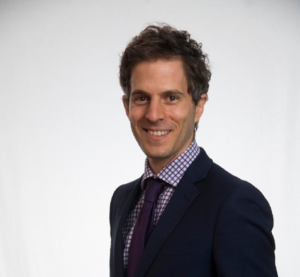 Justin Koonin is an Advisory Group member of the Civil Society Engagement Mechanism for UHC2030, and the Global North CSO Alternate on the UHC2030 Steering Committee. He also represents civil society on the steering group of the Health Data Collaborative. He is president of ACON (formerly the AIDS Council of New South Wales), Australia’s largest community organisation and service provider dedicated to HIV/AIDS prevention, care and support, as well as lesbian, gay, bisexual, transgender and intersex (LGBTI) health. He has over a decade of experience leading organisations in the Not For Profit sector, including as chair of the New South Wales Gay and Lesbian Rights Lobby. Justin is a scientist by training, and following postdoctoral work in pure mathematics at the University of Sydney, he has consulted to government, healthcare providers and business in the fields of data science and predictive analytics. He currently works as an investment analyst for fund manager Allan Gray. Justin is a Graduate of the Australian Institute of Company Directors, and a member of the AICD Not For Profit Chairs’ Forum.
Justin Koonin is an Advisory Group member of the Civil Society Engagement Mechanism for UHC2030, and the Global North CSO Alternate on the UHC2030 Steering Committee. He also represents civil society on the steering group of the Health Data Collaborative. He is president of ACON (formerly the AIDS Council of New South Wales), Australia’s largest community organisation and service provider dedicated to HIV/AIDS prevention, care and support, as well as lesbian, gay, bisexual, transgender and intersex (LGBTI) health. He has over a decade of experience leading organisations in the Not For Profit sector, including as chair of the New South Wales Gay and Lesbian Rights Lobby. Justin is a scientist by training, and following postdoctoral work in pure mathematics at the University of Sydney, he has consulted to government, healthcare providers and business in the fields of data science and predictive analytics. He currently works as an investment analyst for fund manager Allan Gray. Justin is a Graduate of the Australian Institute of Company Directors, and a member of the AICD Not For Profit Chairs’ Forum.
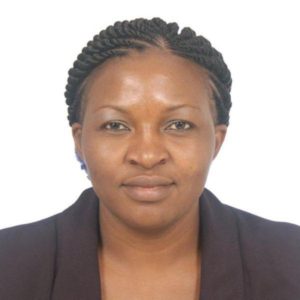
Angela Nguku, BScN, MA, MSN is the Executive Director for the White Ribbon Alliance (WRA) Kenya, which she founded in 2009. A graduate midwife and passionate maternal, newborn and adolescent health champion, she is also the Regional Advocacy Advisor for the global WRA in the African Region. Angela’s career spans over 14 years of dedicated work towards ending preventable maternal and newborn deaths globally, amplifying the voices of marginalized and vulnerable populations in Kenya, throughout Africa, and around the world. She combines her proven influencing and negotiation skills in advocating for accountability for the health of mothers, newborns and adolescents, and for frontline health workers’ voices to be heard and included at all levels of decision-making. She is an advisory member of the People’s Voice Advisory Board of the Lancet Global Health Commission on High Quality Health Systems in the SDGs era and the Deliver for Good Campaign in Kenya. In addition, Angela is a task force member of the CSO coordination group of the Global Financing Facility in Kenya as well as a member of the Kenya CSOs SDGs forum.
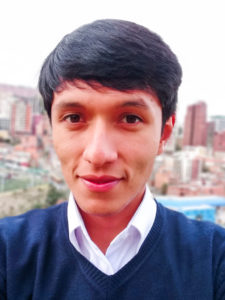
Alan Jarandilla Nuñez is a lawyer and a passionate activist from Bolivia serving as Co-Director of Policy and Advocacy for International Youth Alliance For Family Planning (IYAFP). He is the founder of Change the System (CTS), a Bolivian youth-led organization working towards sustainable development, human rights and youth participation, from a systemic change perspective. He is also a member of the Youth Coalition for Sexual and Reproductive Rights. He is a vocal advocate for sexual and reproductive health and rights and believes that an intersectional and holistic approach to global issues is fundamental for addressing them. He has been following and leading advocacy strategies in different international processes such as the Commission on Population and Development, the Commission on the Status of Women, the High-level Political Forum, Human Rights Council, World Health Assembly, United Nations Framework Convention on Climate Change and the Inter-Agency and Expert Group on Sustainable Development Goals, among others.
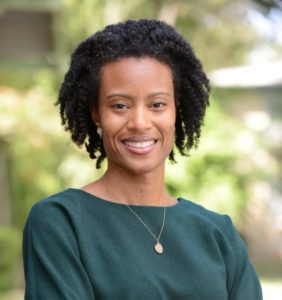 Loyce Pace, a leader who has worked on the ground in more than 10 countries delivering health programs and mobilizing advocates, has served as Global Health Council’s (GHC) President and Executive Director since December 2016. Loyce has held leadership positions in global policy and strategic partnerships at LIVESTRONG Foundation and the American Cancer Society. Additionally, she has worked with Physicians for Human Rights and Catholic Relief Services. Over the course of her career, Loyce championed policies for access to essential medicines, testified for congressional global health appropriations, and launched the Non-Communicable Disease (NCD) Roundtable under GHC, which convenes organizations representing multiple issues and sectors around shared advocacy goals. She has been recognized by the Union for International Cancer Control as a Young Leader at their World Cancer Summit and has been an invited speaker at high-level forums hosted by the World Health Organization, U.S. National Academy of Medicine, and other policymaking agencies. Loyce holds a Bachelor’s degree with Honors in Human Biology from Stanford University and a Master’s degree in Public Health from Johns Hopkins Bloomberg School of Public Health, where she was inducted into the Delta Omega Society. She is a current member of the InterAction and United Nations Association board of directors, and a past member of Phillips Academy (Andover) Alumni Council. She speaks several languages, including Spanish as well as some French and Japanese, and has lived in Africa, Asia, and Europe.
Loyce Pace, a leader who has worked on the ground in more than 10 countries delivering health programs and mobilizing advocates, has served as Global Health Council’s (GHC) President and Executive Director since December 2016. Loyce has held leadership positions in global policy and strategic partnerships at LIVESTRONG Foundation and the American Cancer Society. Additionally, she has worked with Physicians for Human Rights and Catholic Relief Services. Over the course of her career, Loyce championed policies for access to essential medicines, testified for congressional global health appropriations, and launched the Non-Communicable Disease (NCD) Roundtable under GHC, which convenes organizations representing multiple issues and sectors around shared advocacy goals. She has been recognized by the Union for International Cancer Control as a Young Leader at their World Cancer Summit and has been an invited speaker at high-level forums hosted by the World Health Organization, U.S. National Academy of Medicine, and other policymaking agencies. Loyce holds a Bachelor’s degree with Honors in Human Biology from Stanford University and a Master’s degree in Public Health from Johns Hopkins Bloomberg School of Public Health, where she was inducted into the Delta Omega Society. She is a current member of the InterAction and United Nations Association board of directors, and a past member of Phillips Academy (Andover) Alumni Council. She speaks several languages, including Spanish as well as some French and Japanese, and has lived in Africa, Asia, and Europe.
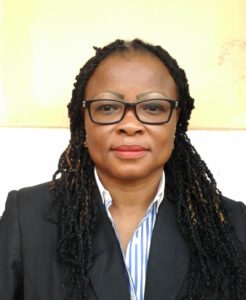 Ngoueko Marie Solange is the President and Executive Director of the Public Health International Consulting Center (PHICC), a Cameroonian civil society organization based in Yaounde. Marie specialized in public health and community development, accumulating a total of 18 years’ experience in Integrated Community Case Management (ICCM), and project monitoring and evaluation.
Ngoueko Marie Solange is the President and Executive Director of the Public Health International Consulting Center (PHICC), a Cameroonian civil society organization based in Yaounde. Marie specialized in public health and community development, accumulating a total of 18 years’ experience in Integrated Community Case Management (ICCM), and project monitoring and evaluation.

